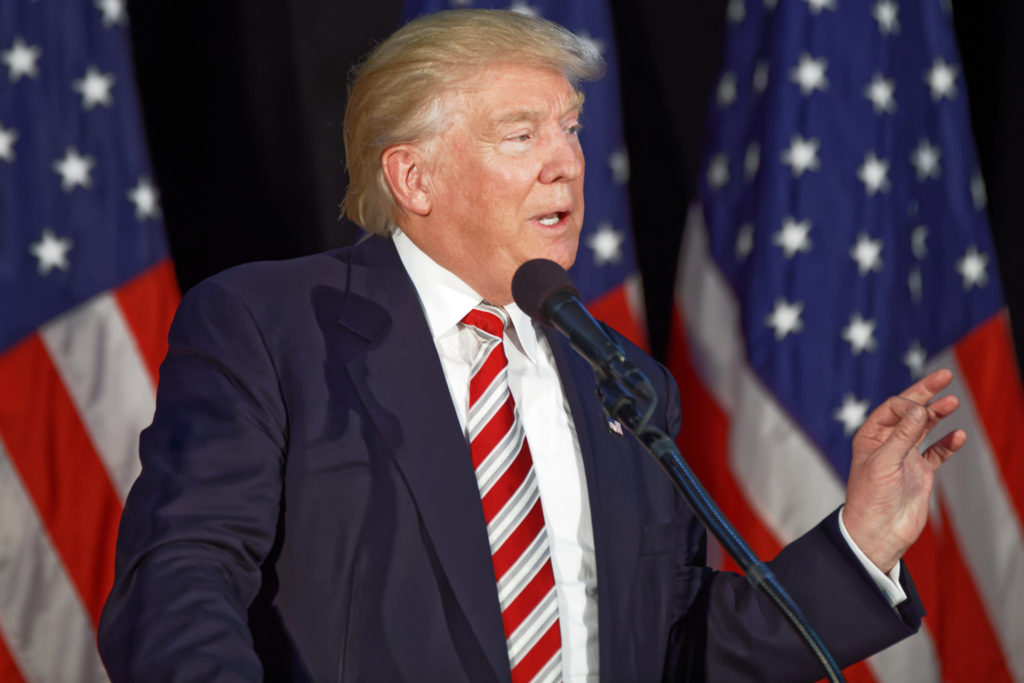As the Trump Administration continues to levy trade tariffs on foreign trading partners as policy of “Make America Great Again” governance in the White House, it could lead to an “age of anger,” International Monetary Fund (IMF) Managing Director and Chairwoman Christine Lagarde said recently. She warned governments throughout the world, but placed emphasis on the U.S., to “back away from protectionism and confrontation,” an issue that dominates the current global trading landscape.
The head of the Washington-based international crisis lender said there are threats of a “dystopian” future where an “angry majority are left behind when cooperation is needed.” Lagarde spoke of the lingering economic downturns that many analysts claim are coming in the next couple of years, referencing that the Great Recession of 2008 should have educated world leaders that “international cooperation is essential, not optional.”
Earlier today, President Donald Trump took to Twitter to admonish China’s trade practices while touting U.S.-imposed trade duties.
“We are either going to have a REAL DEAL with China, or no deal at all – at which point we will be charging major Tariffs against Chinese product being shipped into the United States. Ultimately, I believe, we will be making a deal – either now or into the future….
…..China does not want Tariffs!”
President Trump then tweeted about a story from Bloomberg reporting that China is preparing to restart imports of U.S. soybeans and liquefied natural gas, the first sign confirming the easing of U.S.-China trade tensions. The consequences of this could have voters in key electoral states sticking with the President as the 2020 General Election season begins.
President Trump has not responded to the French lawyer and politician on Twitter, but in the past, the two have fought over the aggressive schedule of interest rate hikes by the Federal Reserve.
In late September, the quarter-percent hike from two percent to 2.25 percent put the current rate back to where is was in April 2008. It was the eighth increase since the Fed began normalizing the policy under then-President Barack Obama in December 2015. The Federal Reserve’s agenda of quantitative-tightening has become more aggressive to clean out the bloated balance sheets caused by six years of quantitative-easing-derived money.
Nonetheless, the Fed is expected to raise rates an additional quarter-point before the end of 2018, despite having three quarter-point raises earlier this year when forecasts showed gross domestic product (GDP) increases were far above four percent. The Federal Reserve Bank of Atlanta’s GDP Now economic forecasting model places U.S. GDP in Q4 at a 2.8 percent rate of growth as of December 3.
The U.S. central bank claims it has raised rates in order to stay ahead of inflation, which has caused languish wage increases in the domestic job market. Wages have grown, however, by 3.1 percent this year – the highest level in a decade.
For a better part of a year, the commander-in-chief has been less than content with rising interest rates during a period of great volatility in the stock market, part of a worldwide episode of financial duress. Months ago, Trump criticized Fed Chairman Jerome Powell‘s decision to raise interest rates. The President said the “Fed has gone crazy,” CNBC reported, with Lagarde hitting back with saying she “would not associate” the chairman “with craziness.”
Nevertheless, on Tuesday, remarking on the history of U.S. involvement as an economic superpower in the post-WWII era, Lagarde added that America took a “leading role” in the world economy, and “a stronger and more stable world paid dividends for the U.S.,” she said in a lecture at the U.S. Library of Congress in Washington, D.C., France 24 reported.
“None of this would have been possible without the United States,” she remarked, speaking on the amount of positive influences America’s mighty economic engine has had over the past half century and more.
“This country challenged the international economic order when it needed challenging. It forged compromise when compromise was necessary,” Lagarde explained. “This country’s collaborative leadership paved the way not only for decades of opportunity here in America, but also for growth that spread across the world.”
Of course, free-market capitalism has been the greatest economic liberator in human history, with one billion people throughout the world being lifted from severe poverty in a little under two decades. Lagarde opined that Trump’s “America First” rhetoric and his view of trade as a “zero sum game in which imports equate to countries taking money out of the country” poses a risk of a “dystopian scenario.” Though, a record-breaking U.S. economy is what Trump has to show for his agenda.
Regardless, the IMF chief also said that world economic prosperity also means promoting equality within the trading system to reduce global tensions, including rescinding government subsidies for large industries and protecting technology and intellectual property, issues Trump ran on during the 2016 presidential election.

